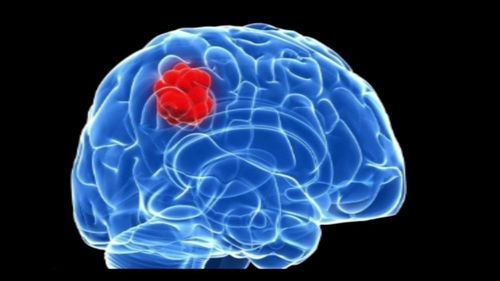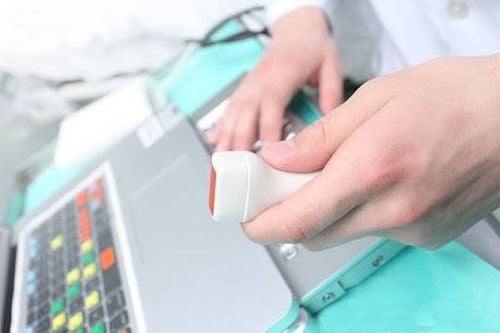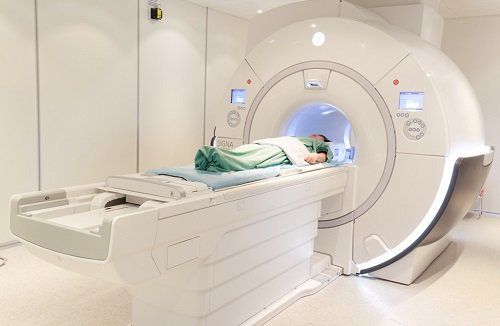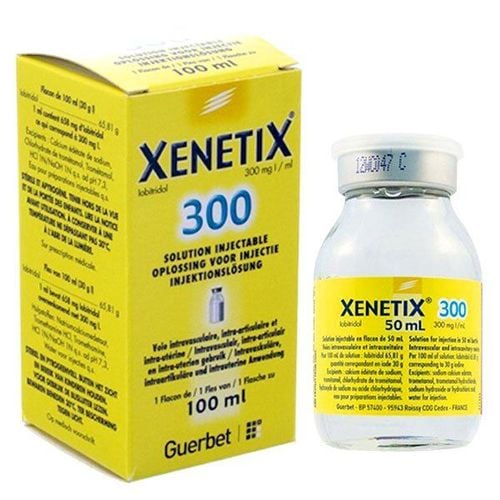This is an automatically translated article.
The article is professionally consulted by Master, Doctor Nguyen Thanh Nam - Radiologist - Department of Diagnostic Imaging - Vinmec Danang International General Hospital.Magnetic resonance imaging (MRI) is a modern imaging method and is frequently used in medical imaging. An MRI scan can be performed on almost any part of the body, providing images of high diagnostic value.
1. On what principle does magnetic resonance imaging (MRI) work?
pulses of radio frequency to control the electromagnetic activity of the nucleus of a hydrogen atom. Here, the hydrogen atom nuclei (which are abundant in water of body tissues) under the influence of radio waves and the Bo magnetic field radiated energy in the form of radio frequency signals. These signals will be received and processed by the receiver system to create image data.The outstanding advantage of MRI technique is that it does not use radiation, does not cause radiation, so it is very safe for patients, the new generation MRI machine does not make noise, so it feels comfortable and comfortable. In addition, MRI diagnostic images have good resolution, multi-pulse, multi-plane, 3D reconstruction, ... applicable to most body parts
Currently, with the above advantages , magnetic resonance imaging (MRI) is widely applied in early detection, diagnosis and monitoring of many body diseases such as: spinal neuropathy; craniocerebral, musculoskeletal diseases, tumors of intra-abdominal organs such as liver, biliary tract, kidney, adrenal gland, pancreas, gastrointestinal tract, uterus and ovaries; breast cancer; cardiovascular disease (magnetic resonance of the heart, blood vessels), congenital abnormalities in the fetus (fetal MRI), tumor screening, systemic metastases...
Painless magnetic resonance imaging (MRI), Shooting time lasts about 12 -45 minutes. The doctor can then read the exact results and give you your current medical condition or health, from which to have the right treatment and advice.
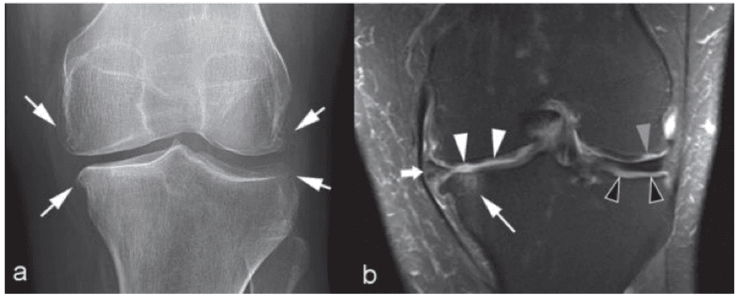
2. Does magnetic resonance imaging (MRI) have any effect?
An MRI scan is a medical diagnostic technique that creates anatomical images of the body using a magnetic field and radio waves. This method does not use X-rays, so it does not cause radiation to the patient, including pregnant women and the fetus as in X-rays or CT scans.To date, there have been no significant harmful effects of magnetic fields on the human body. However, magnetic fields and noise can affect the fetal hearing development. Therefore, fetal magnetic resonance imaging or magnetic resonance imaging in pregnant women should be considered by the doctor.
Because the machine's magnetic field can affect magnetic metal implants inside the body. Therefore, it is a matter of checking and removing metal objects and items that are likely to cause interference or be affected by magnetic fields (dentures, jewelry such as rings, necklaces, earrings, watches, cards). credit card, ATM card, magnetic key...) are strictly performed before you perform the MRI to ensure the safety of you and the machine.
You need to inform the technical staff if you have any tools or equipment in your body such as: Artificial Heart Valves, Vascular Stents, IUDs, Defibrillators, Artificial Pacemakers, Assistive Devices Hearing aid, Automatic drug injection device...
In cases where the body contains assistive devices or metal foreign bodies, the doctor will consider whether you should perform an MRI or not. like how to shoot more safely.
For people with tattoos (tattoo) on the body, magnetic resonance imaging directly into these areas can cause skin burns.
For the case of magnetic resonance imaging with intravenous contrast, the drug can affect kidney function as well as cause kidney fibrosis, so you need to have kidney function test as well as Report a history of kidney disease.
3. What should be done to ensure safety when taking an MRI?
When the reception room staff, you are instructed to complete the procedure, change into hospital clothes and remove items such as: dentures, jewelry such as rings, necklaces, earrings, watches, credit cards, cards ATM, key from...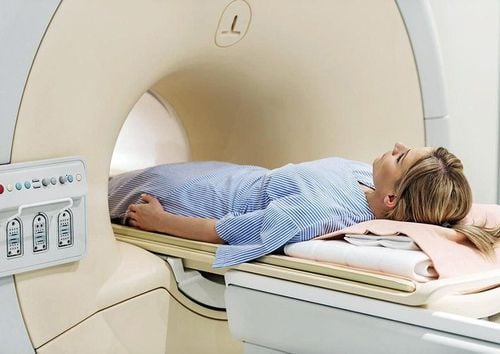
In addition, technicians also use specialized tools to check for foreign objects and metal devices placed in the body. If there are small metal foreign bodies, located in organs with loose tissue such as brain, eyes, lungs, heart, next to large blood vessels, etc., MRI should not be taken. If it is possible to take pictures in other locations, consult your doctor to know more.
In case you need to inject contrast medicine, tell your doctor about the history of drug allergy, possible allergic symptoms after injection such as: Nausea, rash... If you have a hepatobiliary Under anesthesia, you need to make sure you fast for 4-6 hours before the scan.

If the contrast agent is needed, it will be injected into a vein in the forearm or wrist, this can take 1 to 2 minutes. When injecting the drug, the patient may feel warm all over or have a bitter taste in the tongue, this is normal, the symptoms will go away on their own within 2-5 minutes.
Magnetic resonance imaging (MRI) does not pose any health risks, but safety issues should be followed before and during the scan. Please consult your doctor on this matter if in doubt.
Vinmec International General Hospital put into use a magnetic resonance imaging machine 3.0 Tesla Silent technology. The 3.0 Tesla Pioneer Signa magnetic resonance imaging machine with Silent technology from GE Healthcare (USA) is one of the most modern machines in the world.
Silent technology is especially beneficial for patients who are children, the elderly, weak health patients and patients undergoing surgery. Limiting noise, creating comfort and reducing stress for customers during the shooting process, helping to capture better quality images and shorten the shooting time. Magnetic resonance imaging technology is the technology applied in the most popular and safest imaging method today because of its accuracy, non-invasiveness and non-X-ray use.
Please dial HOTLINE for more information or register for an appointment HERE. Download MyVinmec app to make appointments faster and to manage your bookings easily.





